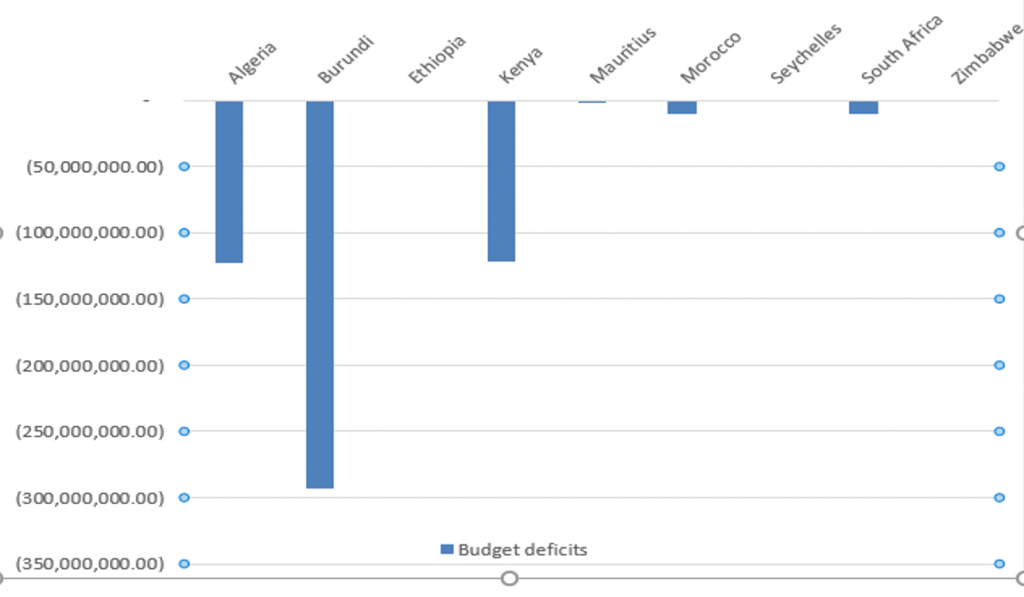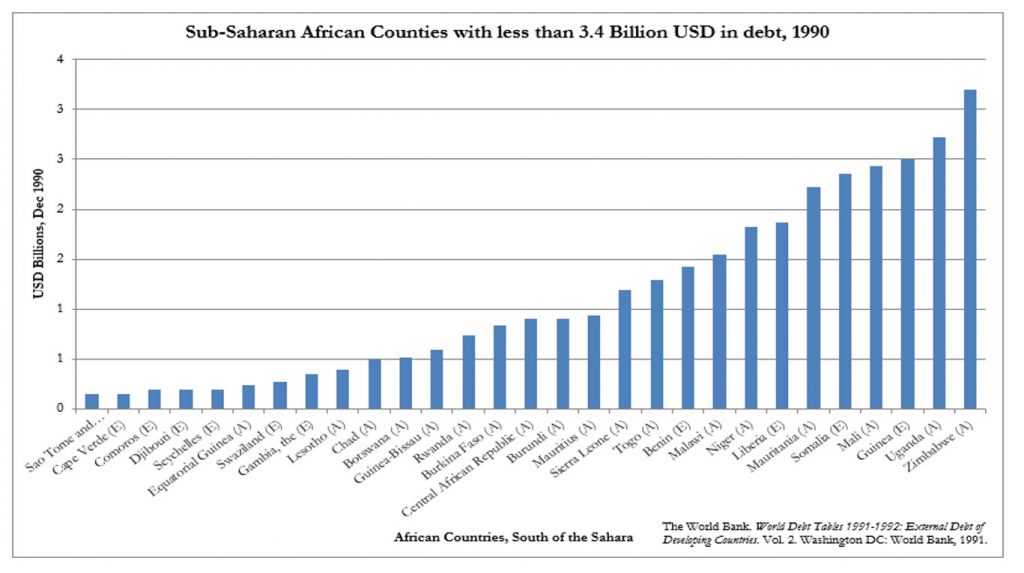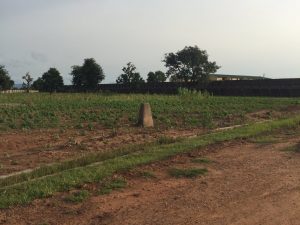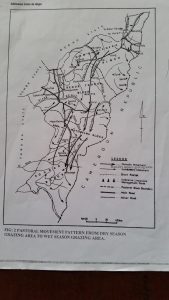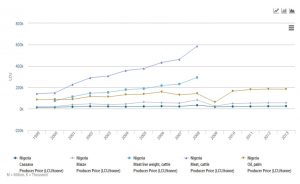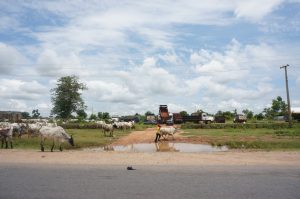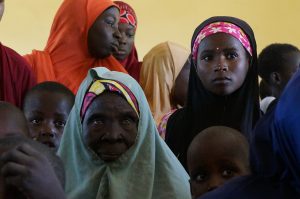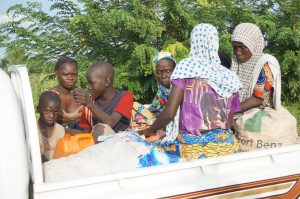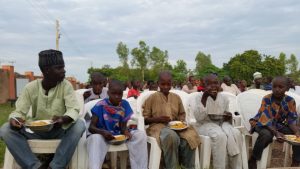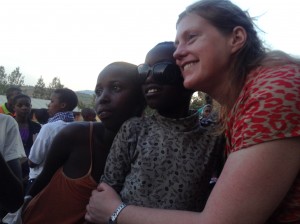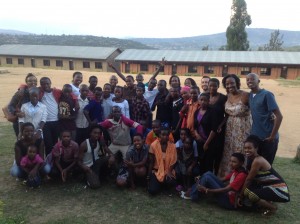On July 22, 2015, Amnesty International issued an action alert about a crackdown on free speech in Mozambique. In this guest post, Gary Littlejohn provides context. Join the call to action from the Association for Concerned Africa Scholars here, or post a comment below.
A well-known public intellectual Dr. Castel-Branco and a national newspaper editor Mr. Mbanze are due to go on trial in Mozambique at the end of August, charged with insulting the then President of Mozambique, Armando Guebuza in 2014. It is illegal to insult the President. A new President was elected last year, but the remarks by Castel-Branco on Facebook prior to the last election, remarks which were reproduced in a national newspaper and elsewhere, are not in dispute. That immediately raises the question as to why other media that reproduced these remarks are not also on trial. Given that freedom of speech is guaranteed by the Mozambican Constitution, this raises an important question concerning what the limits of such freedom are in relation to the law against insulting the President. To understand the situation in which these charges were made, some background information should help.
Loss of legitimacy amid increasing problems in Mozambique
Following the end of Apartheid in South Africa and Mozambican multiparty elections in 1994, Mozambique had a period of fairly rapid economic growth from a very low base during the rest of the 1990s. In my view, this had as much to do with regular rainfall as with the economic policies supported by the World Bank, the IMF and European Union. Towards the end of the 1990s, a large project (USD 2 billion) was implemented. It had been arranged with the backing of South African government guarantees and is known as the Maputo Corridor. It included a new aluminium production facility near Maputo, the capital city, as well as a new road from South Africa to Maputo and bauxite supplied from a mine just inside the nearby South African border. Electricity is provided by hydroelectric power from Tete Province to the north of Mozambique.
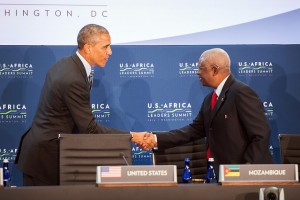
President Obama greeting President Guebuza at the Africa Summit in Washington, 2014 (Photo: State Department)
By 2003, when this investment had been completed, this capital intensive, low employment approach to growth was a success in terms of GDP growth and the balance of payments, but did nothing to reduce poverty in Mozambique, as a poverty survey in 2002 showed. It was an export oriented, extractive industry model that subsequently relied on encouraging foreign direct investment by tax concessions and few restrictions on repatriation of profits, presumably in the hope that that the resulting infrastructural investment would facilitate other forms of economic activity. In 2010, a second wave of such investment began, this time coming from Brazil, with the main export market expected to be for coal to China. A similar ‘corridor’ approach was again used, with rehabilitated and newly constructed rail links to the coast. Meanwhile a second poverty survey in 2009 showed that poverty had actually increased from around 52% to 54% of the population.
Apart from the problem of ‘jobless growth’ the government had started to lose legitimacy for other reasons largely related to poor management in various ministries that tended to adversely affect those on low incomes. For example, in March 2007 a huge munitions depot in a suburb of Maputo exploded, killing about 500 people and injuring many more. The government was slow to respond to this disaster, which led to very great criticism in the media and the eventual replacement of the then Minister of Defence, who was the brother-in-law of President Guebuza. What made it worse was that a previous President, Samora Machel, had publicly called for this depot to be dealt with in 1986, not long before his death, so this problem was well known to have been neglected for over 20 years. A year or so later the Minister of the Interior was tried and found guilty of corruption.
One index of this declining legitimacy was the decline in the turnout for Presidential and parliamentary elections. In addition, the Frelimo share of the vote went down in both presidential and parliamentary elections from about 75% to about 57% between 2009 and 2014. Another indicator was media criticism of alleged police involvement with organised crime.
The onset of Brazilian investment also led to fairly large scale popular resistance to the effects of such projects, including over claims of forced resettlement, compensation promised but not fully paid, poor quality of land on to which people had been relocated, and so on. Such protests included protests over ‘land grabs’ that were associated with a large multinational project for agribusiness (known as ProSavana) associated with the most northern corridor in Mozambique, the Nacala Corridor. The protests were frequently suppressed by what many considered to be violent police action.
Meanwhile, Mozambican social scientists whose leading figures often had PhDs from European universities were developing high quality published analyses of social and economic problems in Mozambique. The most internationally prominent group was organised in the IESE (Institute of Social and Economic Studies) which had grown originally by consultancy work funded mostly from abroad, but which then also began to hold highly publicised, well organised annual conferences that had prominent national media coverage, including from several TV stations and newspapers. These large conferences included academics from North America, Southern Africa and Europe, and were invariably accompanied by one or two book launches by the IESE itself, as well as other book launches, including in 2012 one by a Japanese academic. Such well publicised critiques and analyses doubtless contributed to a feeling of insecurity in some ruling FRELIMO circles.
Limited resurgence of armed conflict
In April 2013, armed conflict broke out in Sofala Province near the headquarters of the leader of the main opposition party, RENAMO. Its leader Afonso Dhlakama had left Maputo in December 2012, citing a wish to be nearer to the people. This move may have been a response to the declining parliamentary fortunes of RENAMO, and to the fact that he had consistently failed to win the Presidential elections since 1994. Members of the Rapid Intervention Force (FIR), a sort of paramilitary police, had sought to arrest Dhlakama on the charge of holding illegal arms. This attempt had failed but some RENAMO personnel had been arrested and were held in a nearby police station, from which they were ‘rescued’ by other RENAMO members in a fight that included fatalities.
That incident sparked months of low level conflict, including armed raids on traffic on the main north-south highway in Mozambique, and sabotage of rail lines thereby threatening mineral exports. The situation was only partially resolved in time for Dhlakama to register once again for the elections of October 2014, and in some respects it has still not been resolved, with some violence in Tete Province in July 2015. RENAMO disputes the results of the 2014 elections, and is refusing to cooperate with the government in various ways.
The way in which this armed conflict and its related political dispute were handled by President Guebuza drew some further criticism in the media and elsewhere. The general in charge of the Armed Forces for the Defence of Mozambique (FADM) made a public statement near the start of this conflict (April 2013) in which he made it clear that the FADM would not be involved, since it was an internal political matter. Soon afterwards, his contract was not renewed.
Internal FRELIMO Manoeuvres
These various problems have doubtless led to a growing sense of unease within at least some sections of FRELIMO. The situation was exacerbated by an attempt by President Guebuza to have the Constitution changed so that he could try to be elected for a third term. This failed and he then allegedly tried to arrange for a candidate that he preferred to be nominated by FRELIMO, but this too failed. The latter political setback took place at the time of the intractable dispute with RENAMO. It seems fair to comment that President Guebuza’s support for what might be termed neoliberal authoritarian rule was in increasing difficulty by mid-2014, and that some in FRELIMO ruling circles apparently wished to distance themselves from it.
Facebook Remarks
Following a demonstration in 2014, Carlos Nuno Castel-Branco, at that time the Director of the IESE, made some remarks about the demonstration in which he had participated. These remarks on Facebook were soon reproduced in various formats. Castel-Branco was eventually taken in for questioning, but only some time later and after a lot of support had been publicly expressed for him. This initial questioning was reportedly conducted in an orderly quiet manner, almost as if it was a formality, and he was then released.
Click here to read Castel-Branco’s essay, “Growth, capital accumulation and economic porosity in Mozambique: social losses, private gains” in the Review of African Political Economy.
Then in 2015 a lawyer Giles Cistac was assassinated apparently for stating his opinion that a proposal from RENAMO for some kind of political decentralisation was consistent with the Constitution. Cistac had not supported the RENAMO proposal: he had merely given his legal opinion that it was not inherently unconstitutional. It was widely believed that the assassins were supporters of ex-President Guebuza. There was a large public demonstration in protest at this assassination. It was heavily policed and some participants later declared that they had felt intimidated, but there was no violence on either side.
I am told that Castel-Branco was subsequently in touch through Facebook with the group said to include the assassins, debating with them about their worldview. It is in this context that the charges against him were resurrected. Originally the trial was due to take place on August 1st, but since Castel-Branco was in the UK, it has been postponed to the 31st. Castel-Branco is returning voluntarily to Mozambique, since he feels that the trial is necessary to establish what the limits on free speech are.
From January 2010 until April 2015, when he resigned on an amicable basis, Gary Littlejohn was Briefings and Debates editor of the Review of African Political Economy. He lived in Mozambique in 1982-83 and has since returned on a regular basis. He is the author of Concealed Caches: A review of disarmament efforts in Mozambique, Working Paper 21, Small Arms Survey, Geneva, forthcoming 2015.
